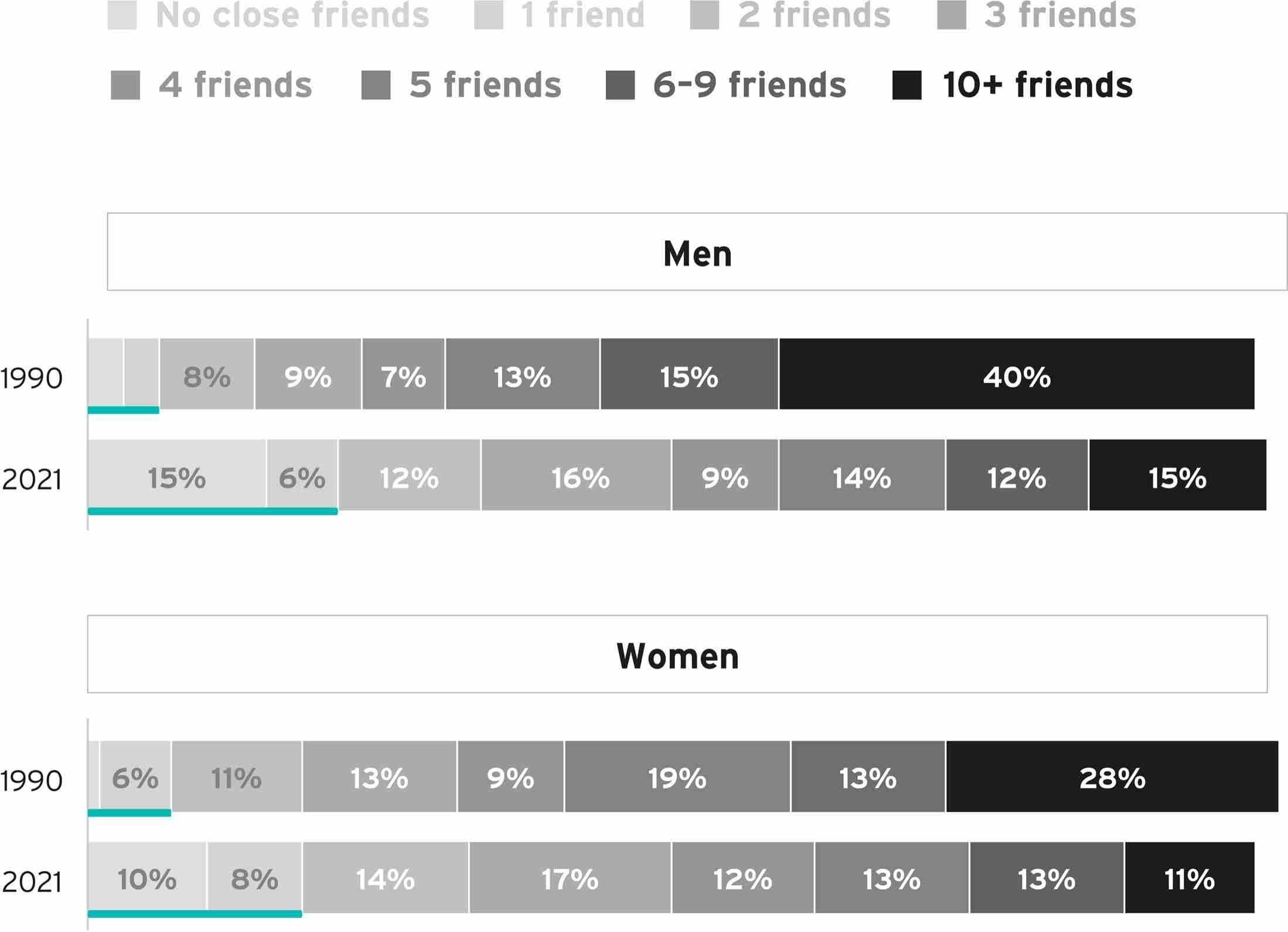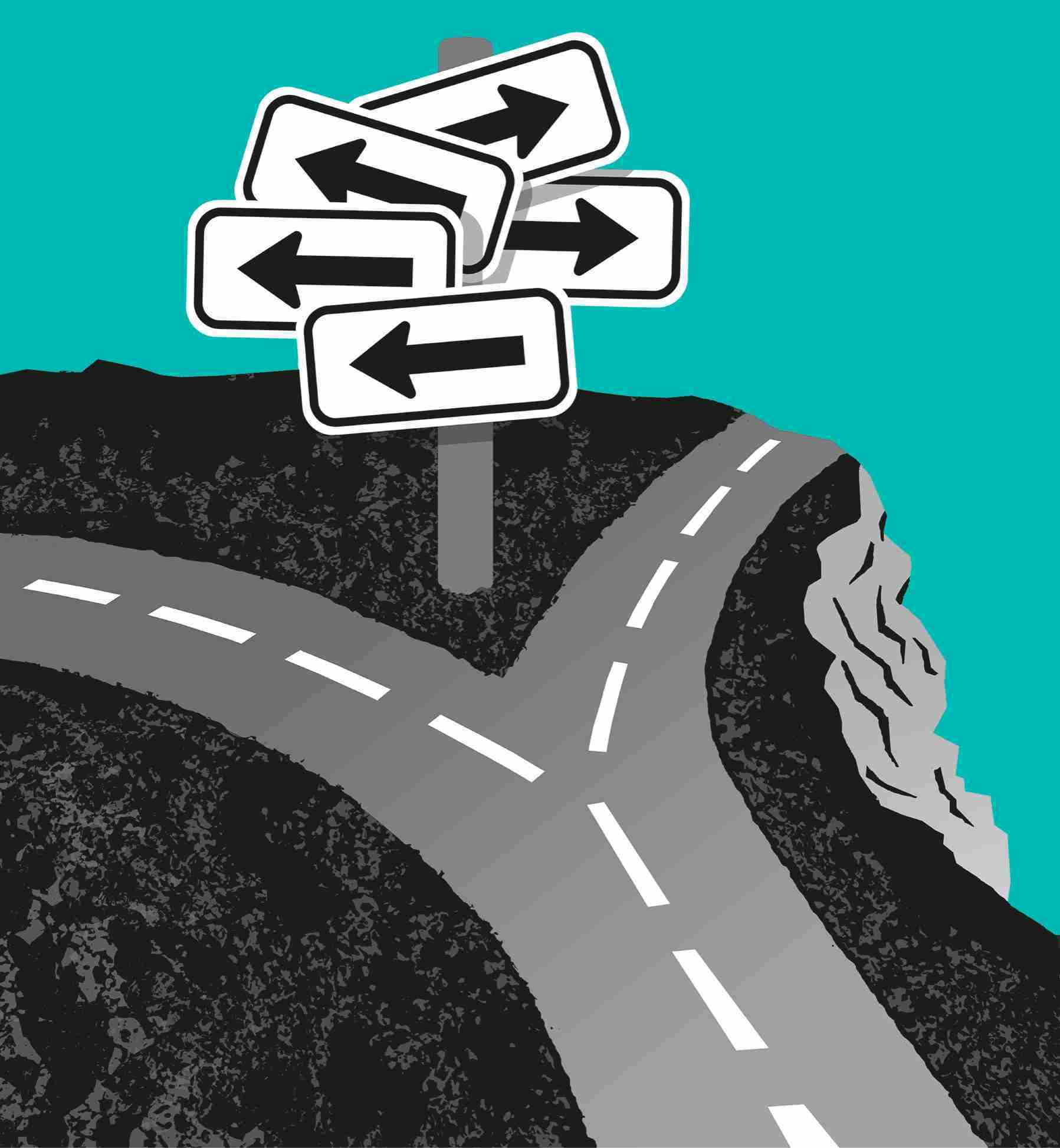Space Is Lonely Without Friends
The dispersion Covid triggered has a dark side, and it will dominate without the right investments. Cutting people off from human contact—whether at our jobs, in our recreation, or even while doing simple tasks like grocery shopping—puts us at risk of digging deeper into our silos. We learn tolerance through exposure, not isolation, and the connective tissue of the commonwealth doesn’t grow well over Wi-Fi.
Tethered all our waking hours to our devices, we’ve become subject to the manipulations of those who control the pipes, and their track record for enlightened despotism isn’t good. We’re anxious, overstressed, and hunched over our laptops. Friendship is dwindling—people report fewer close friends than they did thirty years ago, and 15% of men and 10% of women have no close friends at all. Our public and shared spaces risk decay—or privatization to become playgrounds for the wealthiest few.
The most affluent, the billionaire class whose innovations are giving us this work/live/play-from-home dystopia, will be a million miles away. Literally. They’re taking their windfall profits and investing in moon bases and Mars retreats. I don’t think their vision will ever be realized—Mars is a freezing, airless, irradiated rock. But our billionaire class is arrogant enough to burn off the prosperity of our age in a futile attempt to conquer the next one.
89
Decline in Friendship
Percentage who report having the following number of close friends, not counting their relatives

Sources: American Perspectives Survey, May 2021; Gallup 1990.
Note: Figure may not add up to 100% due to rounding.
